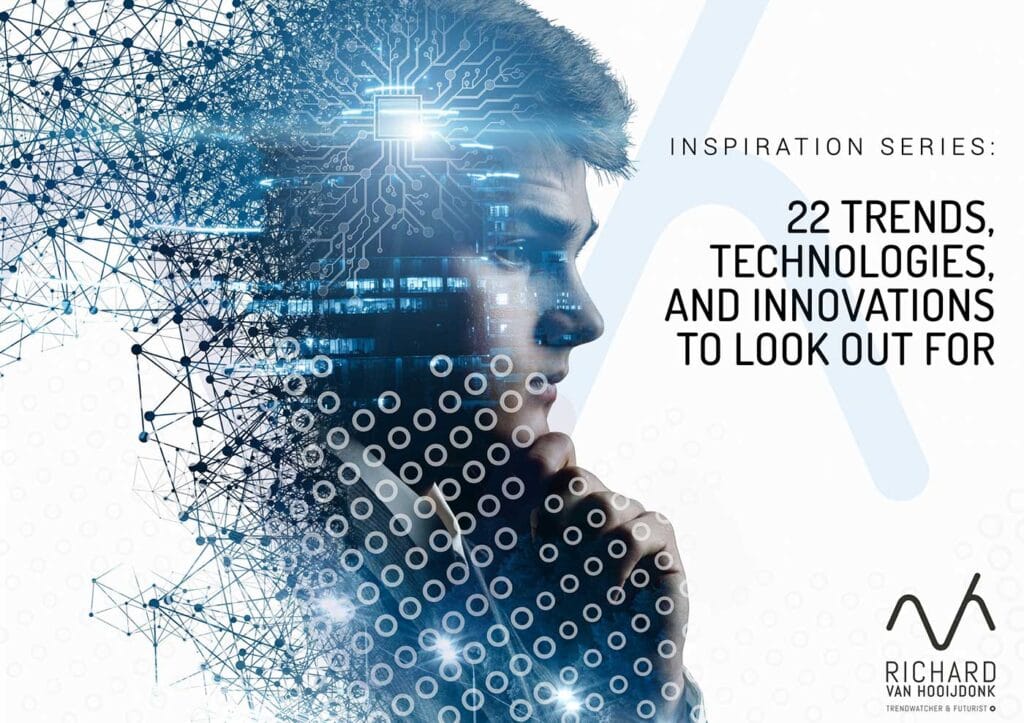- Artificial intelligence can make marketing more human
- Big data enables businesses to deliver a more personalised customer experience
- Chatbots and voice-first computing provide new ways of communication
- Mobile is king
- Blockchain technology can bring a more secure and transparent marketplace
The marketing sector is volatile, and businesses are constantly on the lookout for the next big thing that will push them ahead of their competition. And it’s easy to understand why technology has taken on an increasingly prominent role in this sector in recent years, forcing companies to adapt or risk being left behind.
In fact, it’s increasingly obvious that tech is the future of marketing. To better understand this trend, the mobile marketing technology developer TUNE recently conducted a survey of 350 marketers, CEOs, influencers, and industry experts, who were asked to offer their predictions about which technologies would have the most profound impact on the marketing sector in 2018. Perhaps unsurprisingly, artificial intelligence (including deep learning and machine learning) topped the list with 37.4 per cent, while 16.8 per cent of respondents chose big data as the year’s most disruptive technology. These were followed by augmented reality, virtual reality, and mixed reality at 12.2 per cent, chatbots and messaging at 10.1 per cent, and mobile also at 10.1 per cent.
Artificial intelligence can make marketing more human
When you take a closer look at the list, it’s clear why artificial intelligence was such a popular pick. And if you include technologies that require AI to function, such as chatbots or voice-first computing, its reach extends even further. “AI and machine learning will have the most profound impact on marketing in 2018 because it will fundamentally make ‘marketing’ more human,” says Brian Solis, a principal analyst at Altimeter. Artificial intelligence allows businesses to better understand customers and their needs, personalise their experience, predict their behaviour, and communicate with them in real time.

Today’s consumers are digital natives who are media-savvy, and that’s made them impervious to conventional marketing techniques. Rather than just trying to sell them something, businesses need to find a way to reach them on a deeper, more personal level. “AI will without a doubt be the technology that has the most impact on marketing going forward as it allows marketers new capabilities to interact with a huge number of people on a personal level that could never have been done before,” says Mahi de Silva, the CEO of Botworx.ai.
Big data enables businesses to deliver a more personalised customer experience
Just like with artificial intelligence, there’s a great deal of overlap between big data and the other technologies on the list. In fact, 64 per cent of all the technologies included by the respondents are essentially data-driven. With the help of big data, businesses can keep track of their customers’ shopping habits through every channel, learn how they react to specific ads and offers, and then use this information to deliver a more personalised experience.

When combined with artificial intelligence, big data becomes an even more powerful tool. “There is little doubt that Big Data married with AI will be the marketing technology story of 2018. That powerful combination will continue to make huge strides in optimizing ad targeting, creative design, and marketing offers where results are measured with hard metrics like clicks and purchases,” says Eric Koefoot, the CEO of PublicRelay. For example, Amazon uses a sophisticated recommendation engine to create a more personalised consumer experience and drive sales. By analysing users’ purchase history, the things they’ve liked, rated, viewed, or purchased in the past, as well as the items in their shopping cart, the engine’s algorithms can offer them more relevant product recommendations. According to Amazon, the recommendation engine generates more than 35 per cent of the company’s sales.
Chatbots and voice-first computing provide new ways of communication
The growing popularity of Apple’s Siri, Amazon’s Alexa, and the Google Assistant is a clear sign that consumers are becoming increasingly comfortable with this form of interaction. This development hasn’t gone unnoticed by marketers, who are adopting intelligent conversational chatbots and using them to communicate with consumers in real time, building more intimate relationships with them.
With voice-first computing, businesses can take this relationship to a whole new level, allowing consumers to make purchases without even lifting a finger. Around 39 million Americans now own a voice-assisted device, according to a report published by NPR and Edison Research. “Smart voice systems enable marketers to connect to customers from anywhere: Car, kitchen, the bedroom, and on the go,” says Jeremiah Owyang, a principal analyst at Kaleido Insights. Voice is now considered the preferred method to search on mobile, with 40 per cent of adults using voice search at least once per day.
Mobile is king
Mobile technology may have been highlighted by only 10 per cent of respondents, but it’s arguably the most important of the lot. That’s because mobile devices are integral to almost everything we do today. “The next billion people coming onto the internet are predominantly via mobile, and we’re seeing this through the rise of mobile messaging, mobile payments, mobile-optimized and ‘lite’ websites, and focus on video, voice, and location-based context, away from heavily text-based internet,” explains Gaurav Ragtah, the founder and CEO of Profillic. Thanks to geolocation technology, businesses will be able to locate and target individual consumers with personalised, real-time offers and suggestions based on their previous shopping habits.
Augmented reality, virtual reality, and mixed reality technologies also allow consumers to experience their favourite products from a completely new perspective and interact with them in ways that were simply unthinkable in the past. While not everyone is convinced that these technologies are the next big thing, heavy investments from major companies like Apple and Facebook suggest that they’ll assume an increasingly important role in the future.
Blockchain technology can bring a more secure and transparent marketplace
Blockchain and cryptocurrencies could also have a major impact on the future of the marketing sector. This technology has the potential to bring more security and transparency to the marketplace, bring an end to fraud, and allow consumers to protect their privacy and give them control over their data. “Advertising is full of waste, fraud and other externalities. One externality is that people’s privacy is being stolen and money is made selling that to advertisers,” says Miko Matsumura, the founder of Evercoin. More and more businesses are now adopting blockchain technology, and we can expect this trend to continue in the future as well.
Technology has already transformed many different aspects of modern business, and marketing is set to become the next. By adopting technologies like artificial intelligence, big data, voice-first computing, and many others, businesses will be able to better understand their customers, form stronger relationships with them, provide new ways of communication, and deliver a more personalised experience.







